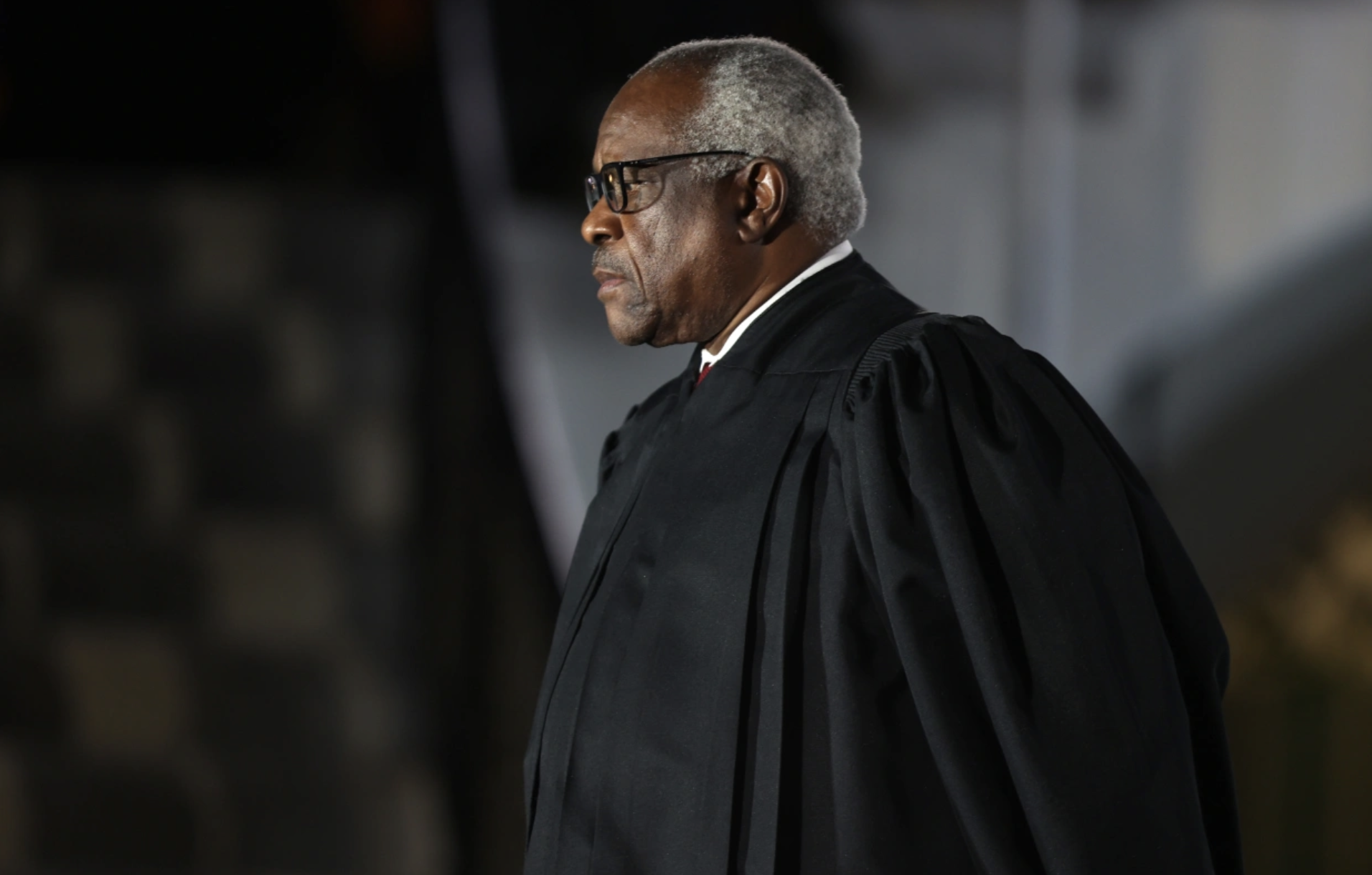
CALL-TO-ACTION
Call on Justice Thomas to Recuse Himself in Trump v. United States
June 28, 2021
Apr 23, 2024
Photo credit: Tasos Katopodis, Getty Images
Dear Chief Justice Roberts:
We reach out to you because as the Chief Justice you are in a singular and unique position to help stem this Court’s decline in public confidence by asking Justice Thomas to recuse himself in the upcoming case of Trump v. United States.
Several months ago, members of the Court unanimously issued a Code of Conduct. In doing so, the Court prefaced the Code with a “Statement of the Court” explaining the reasons for its issuance, noting that the Code brings together ethical standards existing in “a variety of sources” that “guide the conduct of the Members of the Court.”
The Statement further explained that the Code should “dispel” a “misunderstanding” that the “absence of a Code” implied that “the Justices of this Court, unlike all other jurists in this country, regard themselves as unrestricted by any ethics rules.”
The issuance of this Code coincided with a growing public perception that the Justices considered themselves unbound by clearly delineated ethics rules. That perception has been exacerbated by the revelations that some members of today’s Court, most notably Justice Thomas, have repeatedly accepted lavish gifts from wealthy, politically well-connected donors while continuing to sit on cases in which their impartiality has been questioned because of those gifts.
The public perception of the Court as an institution is of the utmost importance. As Hamilton presciently wrote in his famous essay The Federalist No. 78 (1788), the Court, unlike the President and Congress, “has no influence over the sword or the purse,” it depends on its “judgment” for maintaining public confidence. Centuries later, these words were echoed by Justice Frankfurter, when he wrote that the “confidence of the people is the ultimate reliance of the Court as an institution.”
By all indications, Justice Thomas has no intention of recusing himself from the Court’s consideration of Trump v. United States, which will address whether the former president can be tried for conspiring to overturn the 2020 presidential election results and for conspiring to obstruct, and for actually obstructing, certification of the electoral vote. Such a failure to recuse would conflict with the most basic concept of ethical judicial behavior.
Under the Court’s Code of Conduct, the case for Justice Thomas’s recusal is stunningly straightforward. It rests squarely on his wife’s extensive and well-documented involvement in the efforts to overturn the election results and obstruct certification of the electoral vote – efforts at the heart of the charges against Mr. Trump. As confirmed by investigative reporters and by the Congressional hearings, Virginia Thomas was, among other things:
- Present at the January 6 rally where many participants proceeded to march on, and ultimately break into, the Capitol Building;
- A board member of an organization at the forefront of the “Stop the Steal”movement;
- The sender of numerous text messages to White House Chief of Staff Mark Meadows imploring him, for example, to “pursue unrelenting efforts to overturn the 2020 presidential election” and “save us from the left taking America down”; and
- An advocate in meetings with state legislators in states won by President Biden for the legislators to lawlessly substitute their own electors.
Canon 3.B.(2) of the Court’s Code states that, “A Justice should disqualify himself or herself in a proceeding in which … an unbiased and reasonable person who is aware of all relevant circumstances would doubt that the Justice could fairly discharge his or her duties.” The Canon then provides examples that include where “The Justice knows that the Justice . . . or the Justice’s spouse . . . has a financial . . . or any other interest that could be affected substantially by the outcome of the proceeding” or where “The Justice or the Justice’s spouse . . . is known by the Justice . . . likely to be a material witness in the proceeding.”
It is inconceivable that Justice Thomas does not know that his wife has a substantial interest in a decision granting Mr. Trump’s immunity defense, and the dismissal of all the election interference charges against him. As a result, a dismissal could be much to her advantage, as she would be spared the public embarrassment of having the prosecution or defense in this high-profile trial call attention to her stridently partisan role in the events of, and leading up to, January 6. It is implausible that Justice Thomas is unaware that his wife could be called as a material witness.
The correct action under the Code is clear. An unbiased and reasonable person aware of all relevant circumstances could not “reasonably” accept any assertions that Justice Thomas has the requisite impartiality to participate in the Court’s decision in Trump v. United States.
The Court adopted a Code that ultimately leaves recusal decisions to the individual Justices and includes no enforcement mechanisms. It thereby relies on the individual Justices to restore public confidence in the Court by demonstrating that they are indeed guided by the Code.
Without an enforcement mechanism, the best hope for compliance rests in your hands. As Chief Justice, you may not be able to order Justice Thomas to recuse himself, but you can use your leadership role to impress on him the damage that his refusal to recuse threatens to inflict on the Court as an institution, and to engage the Justice’s colleagues in this effort.
We urge you to recognize that the only correct decision for Justice Thomas under the Court’s Code of Conduct is unambiguously clear: recuse and recuse now.
Stay Informed —
featured press


All Rights Reserved. © 2026
General Inquiries • Press Inquiries • Follow on: LinkedIn • Instagram • Bluesky • Facebook